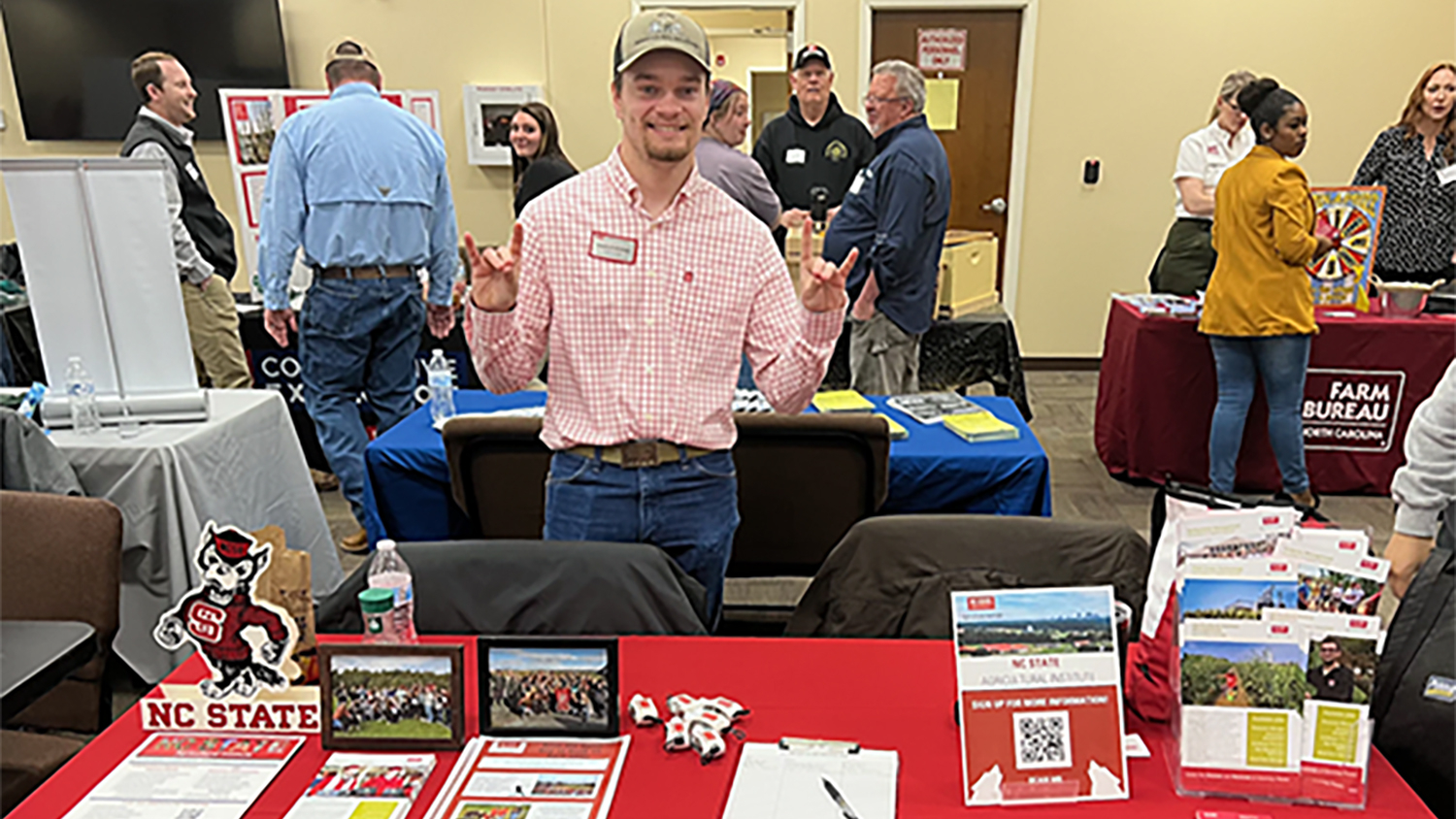Carving a Future in Agribusiness

Charlie McGhee envisions running a small farm in King, North Carolina, while pursuing a career in agribusiness. Though his great-grandparents were sharecroppers, McGhee didn’t grow up in an agricultural household.
However, he’s taken an academic path to reconnect to his farming roots by pursuing associate’s degrees in horticultural science management and agribusiness management through the Agricultural Institute (AGI) in the College of Agriculture and Life Sciences (CALS). He’s also completing an agricultural operations certificate with plans to graduate in May 2025 and work in the farm lending sector.
McGhee’s interest in hunting and desire to raise livestock made him curious about how meat moves from farm to table. To gain practical experience, he enrolled in AGI’s food animal and poultry processing classes.
The food animal and poultry processing curriculum was made possible by a gift from the Golden LEAF Foundation in 2021. Currey Nobles, animal science lecturer, developed the curriculum and teaches its three classes:
- Introduction to Meat and Poultry Processing: fundamental meat processing operations and technology concepts.
- Meat Safety and Quality Systems: essential aspects of food safety and quality systems common to the meat processing industry.
- Value-Added Meat and Poultry Processing: basics of processing operations commonly performed in the meat and poultry industry, such as making sausage, bacon, marinated poultry products and more.
These classes prepare students for careers in the meat processing industry, which has a high demand for skilled workers. McGhee enrolled in Introduction to Meat and Poultry Processing, and Meat Safety and Quality Systems during the spring semester of 2024.
Nobles’ hands-on instruction gave McGhee and his classmates immediate experience handling meat and poultry products in a fun yet technical manner. They also gained in-the-field knowledge by visiting local meat processing facilities.
“The first few labs involved familiarizing myself with the workspace and tools,” he says. “A memorable moment was when Nobles demonstrated how to divide a pig’s half-carcass into primals.”
McGhee even applied his new skills to making sausage.
“Until now, I hadn’t taken any classes with this hands-on option,” he says. “It’s interesting to watch, follow the entire process and then enjoy the product.”
The Meat Safety and Quality Systems class clarified some of McGhee’s misconceptions about poultry processing. Learning about alternative regulations freed McGhee to consider raising and processing chickens on a small farm.

McGhee’s summer 2024 internship at AgSouth Farm Credit has also deepened his interest in the financial aspect of agribusiness. AgSouth is an agricultural lending cooperative that provides farm, land and home loans for customers in North Carolina, South Carolina and Georgia.
Shadowing a Pilot Mountain branch loan officer and learning about his daily responsibilities has helped McGhee understand agricultural loans. He also had the opportunity to tour a poultry processing plant.
Additionally, he worked on a project to develop learning materials for new hires at AgSouth who lack an agricultural background. This project involved interviewing farmers to understand the types of loans they need, the equipment they might purchase with these loans and the overall performance of their operations.
Working in agricultural lending has given McGhee a financial foundation for understanding the industry’s economic framework. The food animal and poultry processing classes at NC State have equipped him with the technical skills he can apply to his future small farm.
“Nobles is an excellent teacher, and he makes learning the technical aspects of meat processing enjoyable,” McGhee says. “Don’t be afraid to get in there and learn about it.”
This post was originally published in College of Agriculture and Life Sciences News.